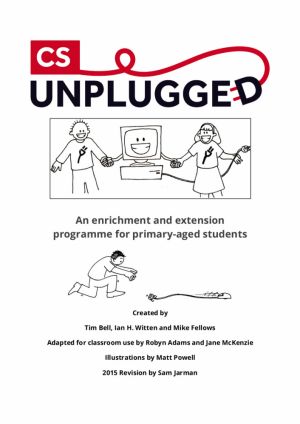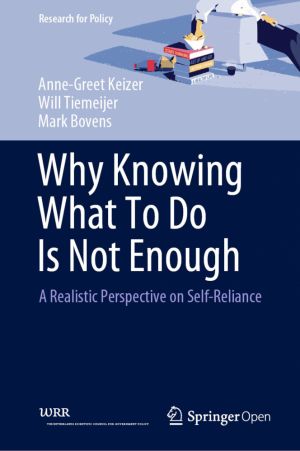Why Knowing What To Do Is Not Enough
A Realistic Perspective on Self-Reliance
by Anne-Greet Keizer, Will Tiemeijer, Mark Bovens
DescriptionDetailsHashtagsReport an issue
What does this mean for public policy? Policymakers tend to assume that the government only needs to provide people with clear information and that, once properly informed, they will automatically do the right thing. However, it is becoming increasingly obvious that things do not work like that. Even though people know perfectly well what they ought to do, they often behave differently.Why is this? This book sets out to explain the reasons for the gap between 'knowing' and 'doing'. It focuses on the role of non-cognitive capacities, such as setting goals, taking action, persevering and coping with setbacks, and shows how these capacities are undermined by adverse circumstances. By taking the latest psychological insights fully into account, this book presents a more realist perspective on self-reliance, and shows government officials how to design rules and institutions that allow for the natural limitations in people's 'capacity to act'. 






Book Description
This book sets out to explain the reasons for the gap between "knowing" and "doing" in view of self-reliance, which is more and more often expected of citizens. In today's society, people are expected to take responsibility for their own lives and be self-reliant. This is no easy feat. They must be on constant high alert in areas of life such as health, work and personal finances and, if things threaten to go awry, take appropriate action without further ado.What does this mean for public policy? Policymakers tend to assume that the government only needs to provide people with clear information and that, once properly informed, they will automatically do the right thing. However, it is becoming increasingly obvious that things do not work like that. Even though people know perfectly well what they ought to do, they often behave differently.Why is this? This book sets out to explain the reasons for the gap between 'knowing' and 'doing'. It focuses on the role of non-cognitive capacities, such as setting goals, taking action, persevering and coping with setbacks, and shows how these capacities are undermined by adverse circumstances. By taking the latest psychological insights fully into account, this book presents a more realist perspective on self-reliance, and shows government officials how to design rules and institutions that allow for the natural limitations in people's 'capacity to act'.
This open book is licensed under a Creative Commons License (CC BY). You can download Why Knowing What To Do Is Not Enough ebook for free in PDF format (3.8 MB).
Book Details
Title
Why Knowing What To Do Is Not Enough
Subject
Politics and Government
Publisher
Springer
Published
2019
Pages
161
Edition
1
Language
English
ISBN13
9789402417241
ISBN10
9402417249
ISBN13 Digital
9789402417258
ISBN10 Digital
9402417257
PDF Size
3.8 MB
License

Related Books

Conferences, meet-ups, and user groups are an enormous part of both cultivating a developer community and continuing education in the industry. The stars of such events aren't the free food or the giveaways - they're the speakers, the ones who effectively and efficiently communicate something of value to attendees. In Public Speaking for ...

Site reliability engineering (SRE) is more relevant than ever. Knowing how to keep systems reliable has become a critical skill. With this practical book, newcomers and old hats alike will explore a broad range of conversations happening in SRE. You'll get actionable advice on several topics, including how to adopt SRE, why SLOs matter, when y...

In this truly unique technical book, today's leading software architects present valuable principles on key development issues that go way beyond technology. More than four dozen architects - including Neal Ford, Michael Nygard, and Bill de hOra - offer advice for communicating with stakeholders, eliminating complexity, empowering developers, ...

JavaScript is the de facto programming language of the web, but the language itself does not include any built-in method for working with input/output (I/O), such as graphics display and sound. Instead, the web browser provides an API for accessing the HTML document in a tree structure known as the Document Object Model (DOM). The combination of Ja...

As technology has developed, computer hackers have become increasingly sophisticated, mastering the ability to hack into even the most impenetrable systems. The best way to secure a system is to understand the tools hackers use and know how to circumvent them. Defense against the Black Arts: How Hackers Do What They Do and How to Protect against It...

Computers are everywhere. We all need to learn how to use them, and many of us use them every day. But how do they work? How do they think? And how can people write software that is fast and easy to use? Computer science is a fascinating subject that explores these very questions. The easy and fun activities in this book, designed for studentren of...

